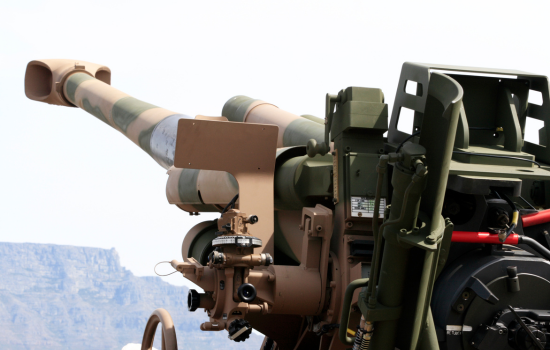Iran – Terror by Proxy
What is known about the arms deal thus far points to very close cooperation on an official level between Iran—via its primary sub-contractor and proxy, Hizballah—and the Palestinian Authority. Ironically, until recently, the PA was a bitter enemy of both Iran and Hizballah.
Previous connections, on a personal level, between Iranians and Hizballah operatives and security officials from the PA were already known. The case of Masoud Iyad, a high ranking officer of Force 17 with links to Hizballah, who ran a terror network in Gaza was published after he was killed by an Israeli helicopter raid. However cooperation of such magnitude between official representatives of Arafat, along with members of the Naval Force of Fatah, and operatives of Hizballah and Iran is unprecedented. Of the four previous smuggling attempts, Iran and Hizballah operated through Ahmed Jibril’s group to send munitions to their counterparts from the “traditional” terrorist organizations—Hamas and the Palestinian Islamic Jihad (PIJ). The last of these attempts was intercepted in May 2001, when Israel’s navy captured the “Santorini.”
This case of the “Karine A” is undoubtedly the most presumptuous and blatant attempt on the part of Iran to interfere in the Palestinian Israeli conflict yet.
Naturally, the huge quantity cache of high-quality arms—which included Katyusha rockets and 20 kilometer-range missiles capable of reaching virtually any Israeli city—could have given the P.A. “strategic advantages” had it reached its destination. This in itself raises doubts as to the PA’s sincere intentions to fight terrorism rather than launching terror attacks against Israeli civilians. Still, what the attempt reveals about Iranian terrorism policy in the region is every bit as revealing about the way in which Iran uses proxy armies to accomplish its goals, while preserving its ability to disavow any actions that could constitute crossing a red line.
Iran’s policy in Lebanon in recent years developed along the same lines. It has constantly supplied sophisticated arms to Hizballa via airlifts from Tehran to Damascus. These aerial shipments were intended to provide Hizballah with strategic capabilities which would allow it to launch a massive military campaign against Israeli civil population should the need arise. Thus, Iran turned Hizballa into an armed Iranian brigade posted on sovereign Lebanese soil. It is possible that this pattern will be extended, and that in future we will find PA personnel being trained at Hizballah camps in Lebanon or in Iran.
Iran’s main military tool in this region has been since 1982 the Revolutionary Guards, the IRGC, along with the Iranian Intelligence – M.O.I.S. These element have also been the motive force behind the training of Palestinian terrorists from Hamas and the P.I.J., as well as other Palestinian terrorist groups in Lebanon or in Iran. Therefore the expulsion of the IRGC from Lebanon should be the first demand from the government of Lebanon, and would certainly contribute to decreasing the level of Iran’s terrorism venues.
It should also be emphasized that Iran’s terrorism policy has not been restricted to the Israeli-Palestinian or to the Lebanese-Israeli conflict. Iran has sponsored many other terrorist organizations around the world, even those that do not adhere to the Shiite doctrine. Some of these organizations—such as the Egyptian Islamic Jihad the Gama’a El Islamiya, the Algerian Armed Islamic Group, and others—have even cooperated with Iran’s bitter enemy, the Taliban. Iran’s direct involvement in terror attacks in recent years in Turkey, Azerbeijan and Saudi Arabia is a matter of publich knowledge.
Thus Iran, among the most active state-sponsors of terrorism in the last decade, must bear liability for its role in arming terrorist groups and upgrading their operational capabilities. Now, Iran has been caught red-handed upgrading the military and terrorist capabilities of an “entity” that unequivocally displays a predilection for terrorism.
The Bush administration, backed by the “coalition against global terrorism” must send an ultimatum to Iran, and demand a stop to this policy of terrorism-by-proxy, even before the start of the next phase of the campaign, which will presumably target states that sponsor terrorism. Failing this, Iran’s negative role could well have strategic repercussions, destabilizing the situation still further and threatening to propel the region into violent armed clashes and even all-out war.
The fact that both Iran and the Palestinian Authority have issued denials of any involvement in the arms shipment should come as no surprise. The principle of deniability is one of the salient traits of state-sponsored terrorism. What matters is that the decision makers address the evidence at hand, rather than the smoke-screen that is put up almost instinctively by the parties involved.






